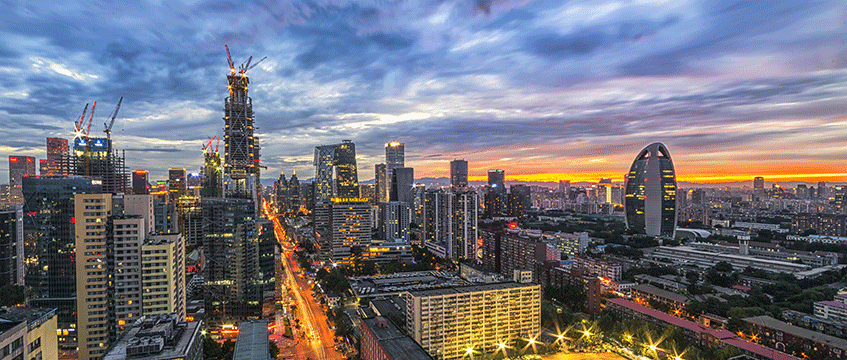The demolition of 15 high-rise residential towers in Yunnan’s capital city Kunming last month was a stark warning of troubles in China’s residential market. And horror stories of ghost towns, plummeting valuations and the country’s most prominent developers weighed down by debt have wide-reaching implications for global markets.
Beijing’s “three red lines” – rules to control high levels of leverage – have hit several listed developers. China’s largest developer, Evergrande, has rushed to offload homes and investments to meet interest payments on some $300bn (£233bn) in debt.
Going into the pandemic, Evergrande Real Estate was the largest property-owning company globally, with assets at $273.8bn. EG analysis at the time found five of the top 10 owners were in China, including Country Garden Holdings at $237.4bn and Greenland Holdings Group at $138.3bn. Other Chinese and Hong Kong developers, more prominent in the UK, featured in the top 50, including Guangzhou R&F at $53.3bn.
These developers own swathes of London from Croydon to Nine Elms and Canary Wharf, earmarked for more than £6bn in prime luxury residential. As debt controls bite and prime London land values slide with further caution around the for-sale market, what could this mean for the biggest developments?
Rivals to the rescue
The most exposed developer is Hong Kong-listed Guangzhou R&F with £4.5bn in projects – a large chunk of which is under construction.
R&F Properties entered the UK in 2017, spending close to £1bn on prime central London developments, by many accounts close to the top of the market. When China began to clamp down on overseas investment, rivals Dalian Wanda, Fosun and Anbang retreated. R&F took the opportunity to join forces with CC Land, buying Wanda’s interest in Nine Elms Square, renaming it One Thames City. Covid-19 delayed progress on site.
In an interview last year, Breaker Xia, UK chief executive of R&F Properties, told EG: “We have had challenges before Covid-19. Everyone needs some comfort about this. This time will pass.
“Our business plan is a long-term strategy. We have plans for eight to 10 years. Right now we are still very flexible. In China this is normal.”

Now under pressure to meet payments and reduce debt, parent company Guangzhou R&F needs new financing. The Hong Kong-listed company reported cash holdings of RMB28.8bn (£3.3bn) in 2020 with further projected income expected to be insufficient to cover debt repayments in the next 12-18 months. Use of internal resources to pay its maturing bonds is expected to restrict R&F’s business operations, according to a recent Moody’s downgrade.
A spokesman from R&F said: “Since launching One Thames City in late 2019, we have seen strong sales throughout. Ahead of the Northern Line extension opening this month, August was the strongest month for sales to date. Despite the impact of the global pandemic, R&F is proud to have made significant progress in the construction and sales programme.”
R&F’s joint venture partner at Nine Elms, CC Land, this month ploughed a further HK$4.6bn (£440m) into the joint venture. Major shareholders have also committed a further £770m to parent company Guangzhou R&F. R&F Property Services has since agreed a RMB10bn (£1.15bn) deal to sell its business to rival developer Country Garden.
New plans afoot
Hong Kong-listed Country Garden, which is based in Foshan, China, is thought to be the world’s largest residential developer. In 2018, Country Garden led a consortium of investors to buy a £400m scheme in east London from Lindhill and Galliard.
The 785-home Ailsa Wharf development in Bow Creek marked Country Garden’s UK debut. The new special purpose vehicle, London Riverlea One, that owns the 6.2-acre site is now seeking to raise the number of homes to 953 in buildings of up to 23 storeys and is preparing to lodge new detailed plans. The changes follow minor amendments proposed in 2018 and approved in 2020 and the recent appointment of new directors to the SPV.
Country Garden’s new plans suggest commitment to the UK strategy, adding to its diversified land bank. Country Garden also has very low levels of leverage of just 27% in 2020.
Meanwhile, developer Greenland teeters at 60% and recent marketing of its £600m Ram Quarter in Wandsworth has cast doubt over its future in the UK.
Earlier this year, Greenland appointed agents to sell the consented freehold to the next development phases of the former Young’s Brewery site in Wandsworth, SW18. At the time the developer said it was “exploring the market to consider the potential future of phases two and three”. In response to speculation over a halt on its landmark 67-storey Spire London at the start of this month, Greenland said: “Reports of Greenland exiting the UK market are inaccurate and based purely on speculation. We remain committed to both of our existing projects in London and we intend to use our experience to pursue further property opportunities in the UK.”
Ratings agency Fitch recently withdrew a senior unsecured rating of BB- in place of a stable outlook. Fitch welcomed Greenland’s diversification with operations in 80 countries and recent return to higher tier residential development, in place of less profitable construction – making UK residential even more attractive for the developer.
To send feedback, e-mail emma.rosser@eg.co.uk or tweet @EmmaARosser or @EGPropertyNews











